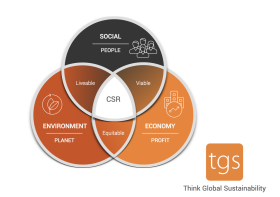Sustainable Supply Chain Management

In today’s rapidly evolving world, businesses have a responsibility to adopt and promote sustainable practices. One crucial aspect is sustainable supply chain management, which focuses on creating an environmentally and socially conscious supply chain while ensuring efficient operations and profitability.
Why Sustainable Supply Chain Management Matters
Embracing sustainability in supply chain management offers numerous advantages to businesses. It not only reduces the environmental impact but also improves brand reputation, mitigates risks, generates cost savings, enhances customer loyalty, and drives innovation.
Key Elements of Sustainable Supply Chain Management
1. Ethical Sourcing
One of the fundamental aspects of sustainable supply chain management is sourcing products and materials ethically. This involves ensuring that suppliers meet specific criteria related to fair wages, safe working conditions, and adherence to environmental regulations.
2. Green Logistics
Implementing green logistics practices reduces carbon emissions and energy consumption. This can be achieved by optimizing transportation routes, using alternative fuels, employing energy-efficient technologies, and adopting sustainable packaging solutions.
3. Waste Reduction
Sustainable supply chain management prioritizes waste reduction practices such as recycling, reusing materials, and minimizing packaging waste. By implementing effective waste management strategies, companies can significantly reduce their environmental footprint.
4. Collaboration and Transparency
Building strong relationships with suppliers and promoting transparency throughout the supply chain is crucial. Collaborating with suppliers who share the same sustainability goals enables businesses to align their practices and collectively drive positive change.
Technological Innovations in Sustainable Supply Chain Management
1. Internet of Things (IoT)
The IoT enables businesses to monitor and optimize their supply chain processes in real-time. Sensors and connected devices gather data, allowing companies to track and improve sustainability metrics such as energy consumption, waste generation, and carbon emissions.
2. Blockchain Technology
Blockchain technology ensures transparency, traceability, and accountability within the supply chain. It enables companies to validate the authenticity and ethical sourcing of their products, while also enhancing trust and reducing the possibility of counterfeit goods.
3. Artificial Intelligence (AI)
AI-powered algorithms can analyze vast amounts of data to identify patterns and optimize supply chain operations. From predictive demand forecasting to route optimization and inventory management, AI can help reduce waste, enhance efficiency, and support sustainable decision-making.
The Future of Sustainable Supply Chain Management
In the coming years, the role of sustainable supply chain management will continue to evolve. Businesses will increasingly prioritize sustainability as a core value, rather than just pursuing compliance. Collaboration, innovation, and leveraging technology will shape the future of supply chains, ensuring a more sustainable and responsible approach to doing business.
Conclusion
Sustainable supply chain management is not just a trend but a necessity for companies operating in the tech industry. By adhering to ethical sourcing, implementing green logistics, reducing waste, and fostering collaboration, businesses can enhance their brand reputation, reduce costs, and contribute to a more sustainable future. Embracing and leveraging technological innovations will further amplify these efforts, driving positive change and transforming the tech industry as a whole.


